Black Panther
 for prolonged sequences of action violence, and a brief rude gesture.
for prolonged sequences of action violence, and a brief rude gesture.
Reviewed by: Blake Wilson
CONTRIBUTOR
| Moral Rating: | Average |
| Moviemaking Quality: |
|
| Primary Audience: | Young-Adults Adults |
| Genre: | Sci-Fi Superhero Action Adventure Fantasy |
| Length: | 2 hr. 14 min. |
| Year of Release: | 2018 |
| USA Release: |
January 29, 2018 (Los Angeles) February 16, 2018 (wide—4,020 theaters) DVD: May 15, 2018 |
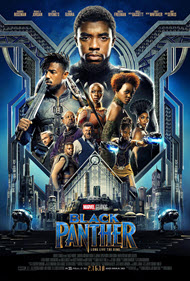

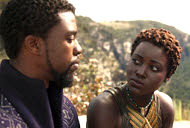
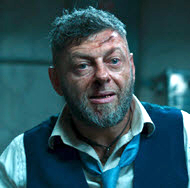
RACISM—What are the consequences of racial prejudice and false beliefs about the origin of races? Answer
In the movie, men talk to their dead fathers in the spirit world. encounters his dead father in the spirit world and briefly converses with him. In reality, this is not possible.
ghosts in the Bible
About death
Eternal life in Paradise versus Hell and eternal death
Battle between good and evil
KINGS in the Bible
Bravery / Courage / Self-sacrifice
Ancestor worship
Isolationist nation—Is this a good or bad strategy, biblically?
Wakanda’s fear of being discovered prevented them from doing what was right
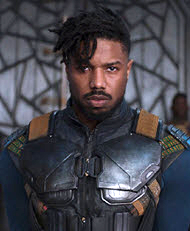
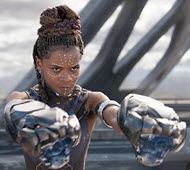
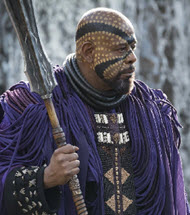
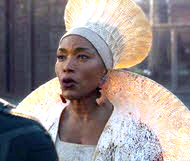
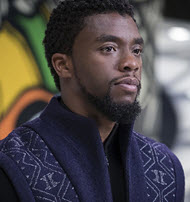
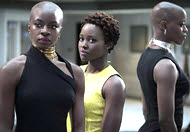
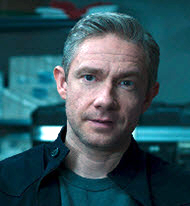
| Featuring |
|---|
|
Chadwick Boseman … T'Challa / Black Panther Michael B. Jordan … Erik Killmonger Lupita Nyong'o … Nakia Martin Freeman … Everett K. Ross Angela Bassett … Ramonda Forest Whitaker … Zuri Andy Serkis … Ulysses Klaue Danai Gurira … Okoye Daniel Kaluuya … W'Kabi Letitia Wright … Shuri Winston Duke … M'Baku Sterling K. Brown … N'Jobu Florence Kasumba … Ayo John Kani … T'Chaka David S. Lee … Limbani See all » |
| Director |
| Ryan Coogler — “Creed” (2015), “Fruitvale Station” (2013) |
| Producer |
|
Kevin Feige David J. Grant Marvel Studios Walt Disney Pictures See all » |
| Distributor |
Sequel: “Black Panther: Wakanda Forever” (2022)
Shortly after the events of “Captain America: Civil War,” T’Challa (Chadwick Boseman) is still grieving the loss of his father T’Chaka, who was killed in an explosion. Being sworn in as king of one of the most mysterious nations in the world (Wakanda) definitely brings its challenges. After holding off a daring challenge to the throne from a mountain tribesman, T’Challa receives word that the secret of his hidden nation could be getting out to the public.
Wakanda is hidden by an invisible shield created by a metal called “vibranium” that was discovered from a meteor. This element has allowed them to make remarkable advancements in technology, science, infrastructure and transportation (it’s like a futuristic utopia of sorts). T’Chaka and his predecessors wanted to keep the vibranium to themselves because they feared the rest of the world would use it for negative purposes such as war.
It turns out, however, that someone is out to get revenge on T’Chaka and take over Wakanda. He also plans to use the nation and its resources to initiate truly horrible things.
Entertainment Value
“Black Panther” follows some typical superhero plot points, but it does make a few changes along the way. Perhaps the biggest is in how the villain is represented. He doesn’t really play a big part until close to an hour into the film. Until then, we are entertained by a more minor villain named Ulysses Klaue (Andy Serkis). There are several stabs at humor (not unusual for a Marvel flick), and thankfully the jokes are very good-natured and funny.
Speaking of the villain, he’s one of the most interesting villains Marvel’s put together. He’s given interesting reasons behind taking over Wakanda. Michael B. Jordan gives an energetic performance that adds a layer or two more than what you might expect a villain to have. As for Boseman, he aptly provides the heart and soul of the strong but gentle-hearted character. Lupita N’yongo gives a memorable performance as the kind Nakia. Movie fans and “Lord of the Rings”/“Hobbit” fans, may be excited to see Martin Freeman (reprising from “Civil War”) and Serkis together again in an interesting scene. There are a lot of characters to keep up with, however. This makes veteran actors such as Angela Bassett and Forest Whitaker have less screentime than people might have hoped for.
Ludwig Gorannson’s score cleverly mixes African beats with some orchestral pieces. The production design and costume design carry bits and pieces of originality and uniqueness. The visual effects, like most superhero movies, are impressive, but sometimes over-the-top. The action sequences are exciting, but the camera work is a bit shaky in places.
As for the usual Marvel elements, Stan Lee’s cameo doesn’t disappoint. And the second post-credits scene is worth waiting for.
Positive Messages
The most prominent message here is the importance of making wise choices, and the dangers that can come from negative ones. Throughout the film, the events involving the villain are connected to a poor decision made by T’Chaka years ago. The Bible warns us that we reap what we sow.
“Be not deceived; God is not mocked: for whatsoever a man soweth, that shall he also reap.” —Galatians 6:7
In the midst of this, the film also points out the importance of integrity. T’Challa and the people are lied to about an event that supposedly happened years ago. Some of this controversy causes some Wakandans to question T’Challa’s right to rule. This idea clearly relates to a verse in Proverbs.
“Whoever walks in integrity walks securely, but he who makes his ways crooked will be found out.” —Proverbs 10:9
It is through hearing this dark family secret that T’Challa realizes that he can learn from his family’s past mistakes, as well as his own. In addition, he can use the wisdom he’s gained to motivate himself to become a better leader for his people. At the same time, Nakia reminds him that “no human is perfect,” assuring him that mistakes are part of people’s lives.
The film discusses ideas regarding what makes a good leader, as well as the idea of whether to remain faithful to a nation regardless of who is the leader. T’Challa is often tempted to take people’s lives, but is always advised that the world will see what he does. He later exercises grace toward others, willing to try to bring them to the light. In one other moment, he shows compassion for (and tries to save) someone who took a bullet for one of his fighters (even if it means risking Wakanda’s safety in the process). In many ways, T’Challa showcases an attitude and persona that brings to mind what the Apostle Peter said,
“Finally, all of you, have unity of mind, sympathy, brotherly love, a tender heart, and a humble mind.” -1 Peter 3:8
T’Challa and the rest of his crew willingly risk their lives to try and save their country and the world.
Negative Content
Language: The MPA’s PG-13 reasoning included a “rude gesture”. This comes from T’Challa’s sister towards the beginning. She gives the “middle finger” in response to one of her brother’s teasings. She is reprimanded for this action.
Elsewhere, there are four uses of the s-word, three uses of “h***,” and one “a**.” “Oh my g**” is uttered once.
Sexual Content: There are a couple of passionate kisses between couples. The females on Wakanda wear tight outfits (though some complain about it). A few outfits in a gambling place are low-cut. Males go shirtless in Wakanda fairly often.
Drugs/Alcohol: Someone orders whiskey at a bar. Other alcoholic drinks are spotted on tables. A serum apparently has the power to weaken someone.
Violence: This is the biggest of the content concerns. Overall, the violence is a little more visceral than you might expect from a superhero movie like this. An early scuffle involves gunshots, punches and Black Panther using his claws. However, the shaky camerawork keeps the biggest impacts off-screen. A couple of flashbacks to the U.N. explosion in “Captain America: Civil War” are seen again.
A man is knocked across a room by stored energy. A fight in a gambling room involves gunshots, spears stabbing people (mostly off-screen) and an explosion. A chase involves cars traveling at high speeds, crashing, flipping upside down and literally being blown apart.
A fake arm is ripped off. Someone is shot with a gun three times, with somewhat bloody entry wounds seen in two places. Others are killed by gunshot. Someone is killed by sharp claws. A bomb explodes a brick wall. A man blocks a grenade from exploding; we see a limited reaction. Rhinos and other large creatures knock soldiers away in another action scene. Ships are fired at and explode. Someone is run over by a car; we only see the person in the car and hear a bump.
T’Challa gets into a couple of “challenge” fights for the throne. Both result in some severe injuries. A man is stabbed in the side before wrestling his opponent down. In another fight, a man slices his opponent’s face. But the opponent slices his side and leg before stabbing him and then throwing him off a waterfall. Another fight involves characters getting hit into a wall by a train, and more stabbing. Someone takes out a sword (bloodlessly).
The film’s opening segment, told in sand figures, involves images of slavery and war with spears and airplanes firing. Someone is poisoned and passes out.
Other: Wakanda has an odd religion that involves ancestor worship and powerful serums or spells. The movie’s opening prologue tells a story involving a Panther god giving special powers to the first “Black Panther.” A man is buried alive and drinks a serum that allows him to go into an altered state and speak with his deceased father in a spirit world. He does this twice. The villain does the same. The serum is made from a glowing purple flower. There is also a serum that causes T’Challa to lose his abilities; we see him react and slightly convulse to both serums.
Characters lie and steal, at times. The villain’s plot involves implications of starting a war between races.
Conclusion
“Black Panther” currently has many people talking. Similar to “Wonder Woman” last year which had a female superhero lead, this movie is a cultural touchstone as it is the first real superhero movie having an African lead. Considering the controversy involved in today’s world, the film’s release seems very timely.
The overall movie has a different feel and tone in comparison to the rest of the Marvel Cinematic Universe (which is entering its 10th year). The result is an entertaining ride with some nice original touches. But it’s not one of the superhero genre’s most moving tales. Unlike the emotional heft at the end of “Wonder Woman” or “Civil War,” “Black Panther” definitely has heart, but it doesn’t emotionally move or inspire in the same way.
Some have been critical about the movie being just politically-correct commentary. And it is true that a few moments/lines of dialog may bring to mind certain ideas involving racism. However, I thought that the stronger messages of integrity, self-reflection, grace and striving to make wise choices mitigated these concepts. And the movie presents a true, honest hero that models compassion and respect for everyone, regardless of skin color.
As for content concerns, the violence is the major concern here. I did hear a few younger kids cry in the audience at the screening I attended. While not very bloody, “Black Panther” is intense, and the shaky camerawork at times may induce motion sickness for some. Wakanda’s spirituality also will likely be a turn-off for some families. On a more positive note, foul language is infrequent, and there is no inappropriate humor or strong sexual content. Ultimately, with the PG-13 rating in mind, parents are encouraged to take the content problems listed here into consideration before making a decision for their family.
In my opinion, “Black Panther” doesn’t reach the top pantheon of Marvel films. It’s sometimes messy and unbalanced in its pacing. And it doesn’t deliver the same gut-punching, jaw-dropping twists and surprises of “Thor: Ragnarok” or “Civil War.” But, it’s still entertaining and unique for a Marvel film, and includes the laughs and excitement one would expect.
- Violence: Very Heavy
- Profane language: Minor
- Vulgar/Crude language: Moderate
- Nudity: Minor
- Sex: None
See list of Relevant Issues—questions-and-answers.


You can see there are SO many physical AND spiritual messages here. All of this was addressed in the middle of a very entertaining plot and beautifully shot film that shows a different side of cultures (Africa is a CONTINENT of many cultures, not a country) often belittled, ridiculed and misunderstood. The ancestry worship did make me cringe, yet I do know that is a part of many cultures around the world. It serves as a reminder that there is still a big world to evangelize.See all »
Moral rating: Average / Moviemaking quality: 5
The negative comments below go to show how we can look at the same thing, have different expectations, and take away something very different. I didn’t expect to see “MLK-like peaceful demonstrations” in a superhero action movie. I expected to see some fights! I also saw a king who was silencing someone who was speaking out of order, not some sort of grandstanding about white people and “white privilege.” But I wasn’t looking for that. I am also very familiar with the comic books, and know the white CIA agent is a solid ally throughout the entire Black Panther series. I hate that we can be so sensitive that we are ready to pounce and be offended over fictional characters with fictional powers from a fictional country, all because of their race. Guess that shows the power of the enemy.See all »
Moral rating: Better than Average / Moviemaking quality: 5
But what I want to address is the issue of racism that some say is in the movie. Given around 90% of reviews are giving it amazing ratings, I wondered if the 10% that were left true about the racism or if the people themselves maybe had a bit of racism in them. Mind you I am a white male. I should add so you have some context that Wakanda is in Africa and basically has very VERY advanced technology because of a special material they found (from a meteor crash long ago). Their city is cloaked so the world cannot see it. See all »
Moral rating: Average / Moviemaking quality: 5
Unlike other superhero stories with secret identities, Wakanda is an entire nation with a secret identity. The Black Panther or T'Challa is to become the ruling king. He just has to fight a few nemesis first. That is the overall plot of the film. There are wonderful themes of family, loyalty, and unity. Unfortunately, there are issues that I had with this movie as well.See all »
Moral rating: Average / Moviemaking quality: 5
The acting, directing, writing, and all other production values are top-notch, as one would expect from Marvel, now owned by Disney. At least three lines in the trailer were cut from the film; a minor annoyance that does not detract from the entertainment value of the picture. There are several major twists that are genuinely surprising, and give the movie more heart. The one annoying aspect (to me) was not hearing a character referred to out loud or visually by his comic book alter ego; a decision made for idiotic political correctness, but at least, it was referenced in his costume, and how he first appears on-screen. See all »
Moral rating: Better than Average / Moviemaking quality: 5
Michael B. Jordan and Chadwick Boseman both provide excellent performances as Erik Killmonger and T’Challa respectively. Angela Bassett’s performance as T’Challa’s mother Ramonda is underrated. There is little objectionable content in the film, save for some minor things (T’Challa’s sister flipping him off was unnecessary). The reviewer of the film did a great job at highlighting the positive messages this film contains.
My only complaint is that the film lacks humor which could’ve been an ice breaker in some scenes (but not to the extent like the “Guardians of the Galaxy” franchise).
Moral rating: Better than Average / Moviemaking quality: 4
Moral rating: Excellent! / Moviemaking quality: 5
The movie is well done with great special effects and a super soundtrack, but I don’t like the occultic and eastern religious overtones. With Yoga, Buddhism, etc. gaining momentum, especially among young adults; I am always troubled to see this in a film.
Moral rating: Extremely Offensive / Moviemaking quality: 5
Although from a basic perspective on superhero movies “Black Panther” is entertaining, the underlying message does not help the race relations but adds fuel to the fire. The message of Martin Luther King Jr. of protesting and petitioning peacefully for equality has been twisted and this movie is evidence of that. The message has gone from peacefully, singing “We Shall Overcome,” and “Let us not seek to satisfy our thirst for freedom by drinking from the cup of bitterness and hatred,” to actually encouraging drinking from the cup of bitterness and hatred, dominating another race, and implying if not outright advocating for racial segregation, the very thing that MLK gave his life to end in our nation.See all »
Moral rating: Average / Moviemaking quality: 5
There are no white people in Wakanda, a perfect city with prefect climate, perfect healthy black people, with far advanced medical personnel and technical equipment, far advanced vehicles and transportation. They mouth the phrase “white people” with disdain. A white man startles a black woman and she says, “Don’t scare me like that, COLONIZER (the racist insult occurs again later).” That white man was shot in the spine and taken to Wakanda and healed completely in less than a day. Later, he acts spineless as blacks ridicule him. Later, a group of some 10 black people are having a discussion, and the same white man tries to provide some pertinent information, but repeatedly as he starts to speak, the men grunt like gorillas, then tell him he is not allowed to speak (obviously because he is white).See all »
Moral rating: Extremely Offensive / Moviemaking quality: 3
PLEASE share your observations and insights to be posted here.
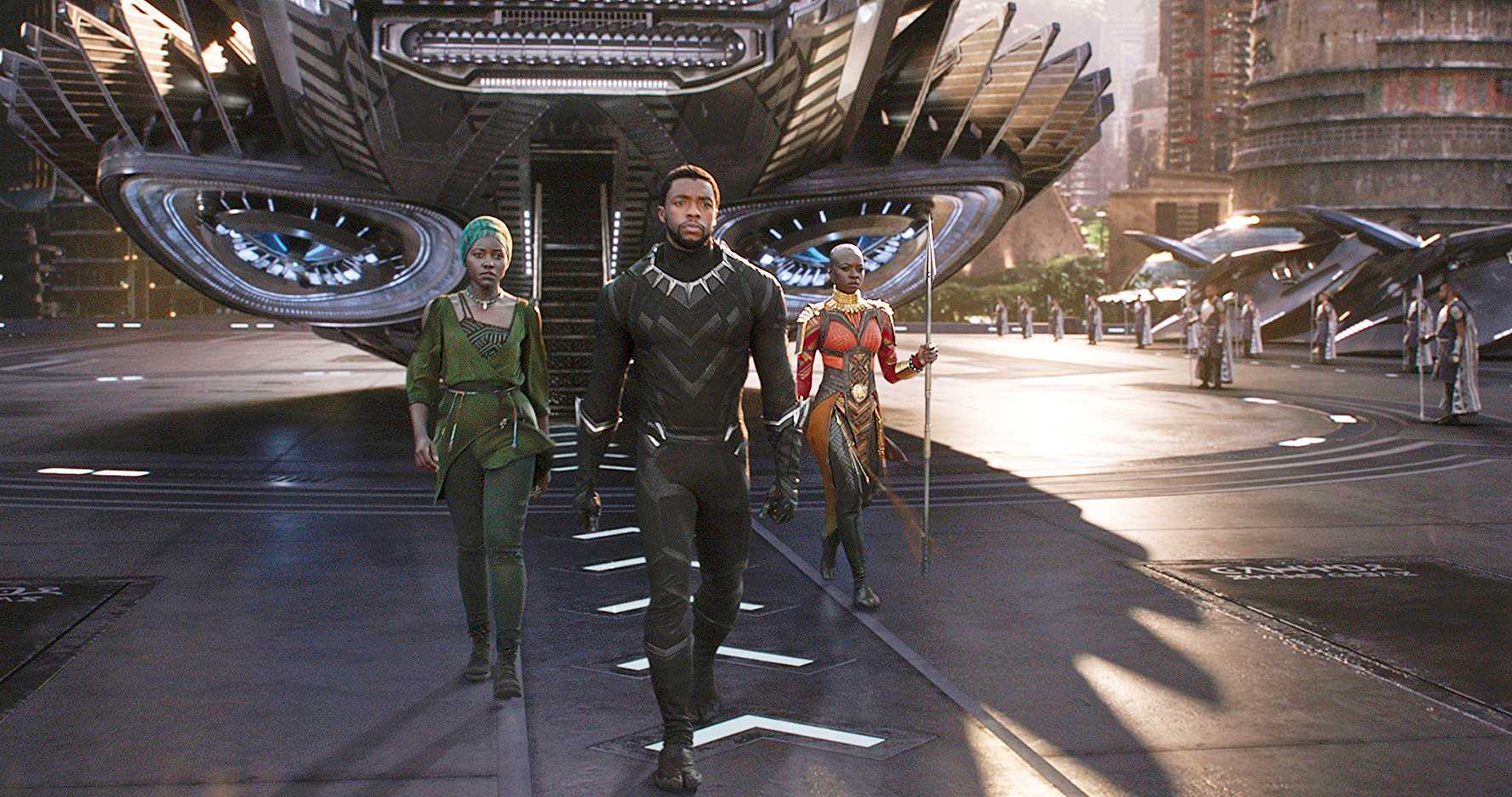

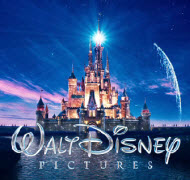
Michael B. Jordan’s character who has known inequality his whole life comes into contact with the more privileged main character and there is a constant battle between the two, as well as an internal struggle inside Chadwick Boseman’s character, as to what the right way to go as to how the country should interact with the outside world, and this constant conflict is what drives the story.
As for elements of concern, there is some violence, though nothing particularly extreme for this genre, and there are elements of tribalistic rituals, in similar vein to “The Lion King,” as well as very infrequent profanity.
Overall, Black Panther is not just a great superhero movie, but a great movie, full stop.
My Ratings: Moral rating: Better than Average / Moviemaking quality: 4½